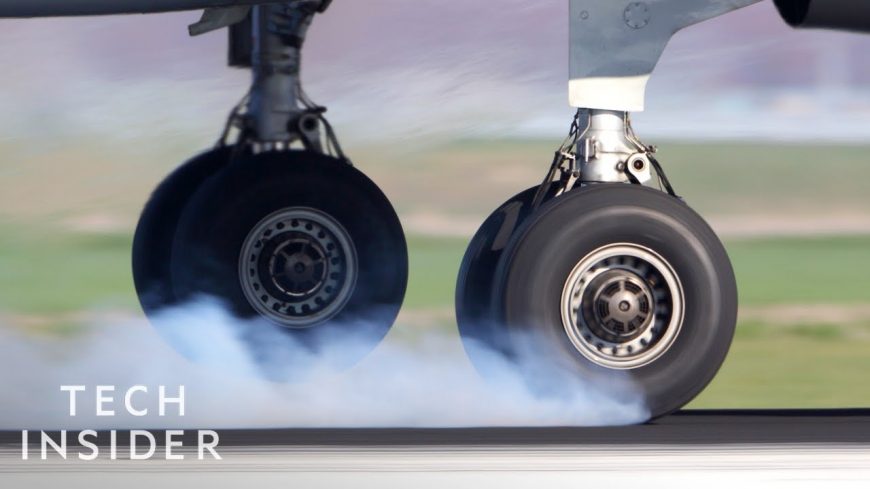The Science Behind Why Plane Tires Don’t Explode on Impact

If there’s one thing that might be easy to take for granted, it’s flying in an airplane. At this point in time, obviously, comfortable air travel is something that’s old news. When we head up in the air, we have certain expectations of a smooth ride. Not only that, but we get to our location much faster than driving while being served snacks along the way. Some planes even have WiFi!
When we break it all down and think about it, it’s certainly nothing short of amazing that this is now a norm.
Because air travel can go so smoothly, there are other things that elude us sometimes as well. For example, being able to land is a feat in and of itself. Not only has the plane made it all the way to its destination through the sky. All of that weight has to touch down as well. It can be easy to forget that your average plane is well over 100,000 pounds. It’s also probably moving in the ballpark of 500 mph while in the air.
Now, upon landing, all of that weight definitely slows down a bit. However, most planes are still moving in the ballpark of about 150 mph. All of that weight touching down on the runway and being able to come to a stop successfully has to take some serious rubber. The amount of friction in slowing down such a mass from such a speed is nothing short of astonishing. This is where the engineers jump to action to make it all work.
By following along with the video below, we get to learn a little bit more about airplane tires. With how common it is for traditional road tires to be destroyed, we would think that losing airplane tires would be much more common. They are, after all, responsible for much more of a load.
However, even though they might look the same, these tires are anything but.

